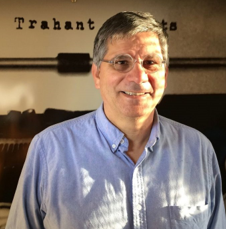By Mark Trahant
Indian Country Today
Scott Pruitt, the controversial agency administrator at the U.S. Environmental Protection Agency resigned last week after the White House determined that scandal after scandal was finally too much. The list of allegations and infractions was long, including some 14 current investigations ranging from attacks on whistle-blowers to special personal favors from the industry he was supposed to regulate.
Pruitt was hostile to climate change science and even the process of government itself.
A columnist for The Guardian newspaper called Pruitt: “The worst. EPA administrator. Ever.”
But will anything change now? The acting head of the EPA, Andrew Wheeler, is a former lobbyist for the coal industry. In addition to coming from industry, Wheeler also once worked on the staff of Oklahoma Sen. James Inhofe, long a critic of climate science.
And the acting EPA leader is already involved in a controversy about the cleanup of abandoned uranium mines in the Navajo Nation.
Wheeler was once the lobbyist for Energy Fuels International. That Canadian company is now seeking federal contracts to clean up those mines as well as engage in new ones. Energy Fuels was one of the companies pushing to shrink the Bears Ears National Monument because the designation would have made uranium mining in the region unlikely.
Energy Fuels chief executive Mark Chalmers was quoted by CNN saying that the 500 abandoned mines – already on the Superfund list – should be cleaned up by his company because the company has the only mill in the area and routinely processes uranium there. “We offer the EPA an established, low-cost option to move material off the Navajo Nation, recycle it into fuel for carbon-free nuclear energy and dispose the remnants in our existing state-of-the-art facilities,” Chalmers told CNN. “Our understanding is that Mr. Wheeler will not be involved in any decision on this Energy Fuels proposal.”
The EPA has requested a budget of $1.089 billion to clean up “many of the worst contaminated sites in the United States and return them to productive use.”
This contract also fits into a broader scheme for more uranium development in the Four Corners. A blog for The Grand Canyon Trust said: “Wheeler’s name should ring a bell for those following the Bears Ears National Monument issue, and his ascension to EPA chief could be cause for concern.” According to Energy Fuels’ letter to the Department of the Interior during the national monument review process, Bears Ears contains: “many known uranium and vanadium deposits located within the newly created BENM [Bears Ears National Monument] that could provide valuable energy and mineral resources in the future.”
The New York Times reported recently that Energy Fuels sold its Bears Ears claims to a smaller company, Encore Energy, in 2016. But Encore issued shares to Energy Fuels in return, making Energy Fuels Encore’s largest shareholder, with a seat on its board.
Tribes have opposed the return of uranium mining in the Four Corners. Many communities are still living with a toxic past and the failure of the industry to clean up its mess. The 1979 spill of an uranium tailing wastewater pond near Churchrock, in the Navajo Nation, is considered the single largest release of radioactive material in American history, surpassing the crisis at Three Mile Island. Drinking water in the area remains contaminated.
A 2017 report by Tommy Rock, a Northern Arizona University PhD student, found elevated levels of uranium in the wells along the river as well as in the pubic water sources.
“The results, which came back in June of 2015, showed uranium levels at 43 parts per billion, well above the EPA limit of 30 parts per billion. Exposure to uranium in drinking water can lead to bone cancer and impaired kidney function. When Rock and his colleagues looked deeper to figure out how long the contamination had been taking place, they found records indicating elevated levels of uranium as far back as 2003. All the tests from 2009 to 2015 showed elevated levels of uranium in the public water,” according to the National Institutes for Health. “The researchers presented their findings at several community meetings, and while people stopped using the public water, they were not seeing any movement by the state or water company to fix the contamination.” At one point “the school district shut off water fountains in the schools and started hauling in water from another town.”
The town and schools do have a new water source at this point, but according to The New York Times families in the region still do not trust the water.
Tribes remain wary about the idea of uranium mining on a larger scale again. A resolution last year by the National Congress of American Indians said “uranium mining at the Grand Canyon and in other areas would pose significant risks to the waters on which nearby tribes rely, and threaten their very existence as a people.”
As acting administrator, Wheeler will not be subject to Senate confirmation. Should President Donald J. Trump nominate him for the post permanently, he would need to get that nod again. Wheeler was confirmed by a vote of 53 to 45 for the Deputy post in April.
~~
Mark Trahant is editor of Indian Country Today. He is a member of the Shoshone-Bannock Tribes. Follow him on Twitter – @TrahantReports
Email: mtrahant@IndianCountryToday.com









